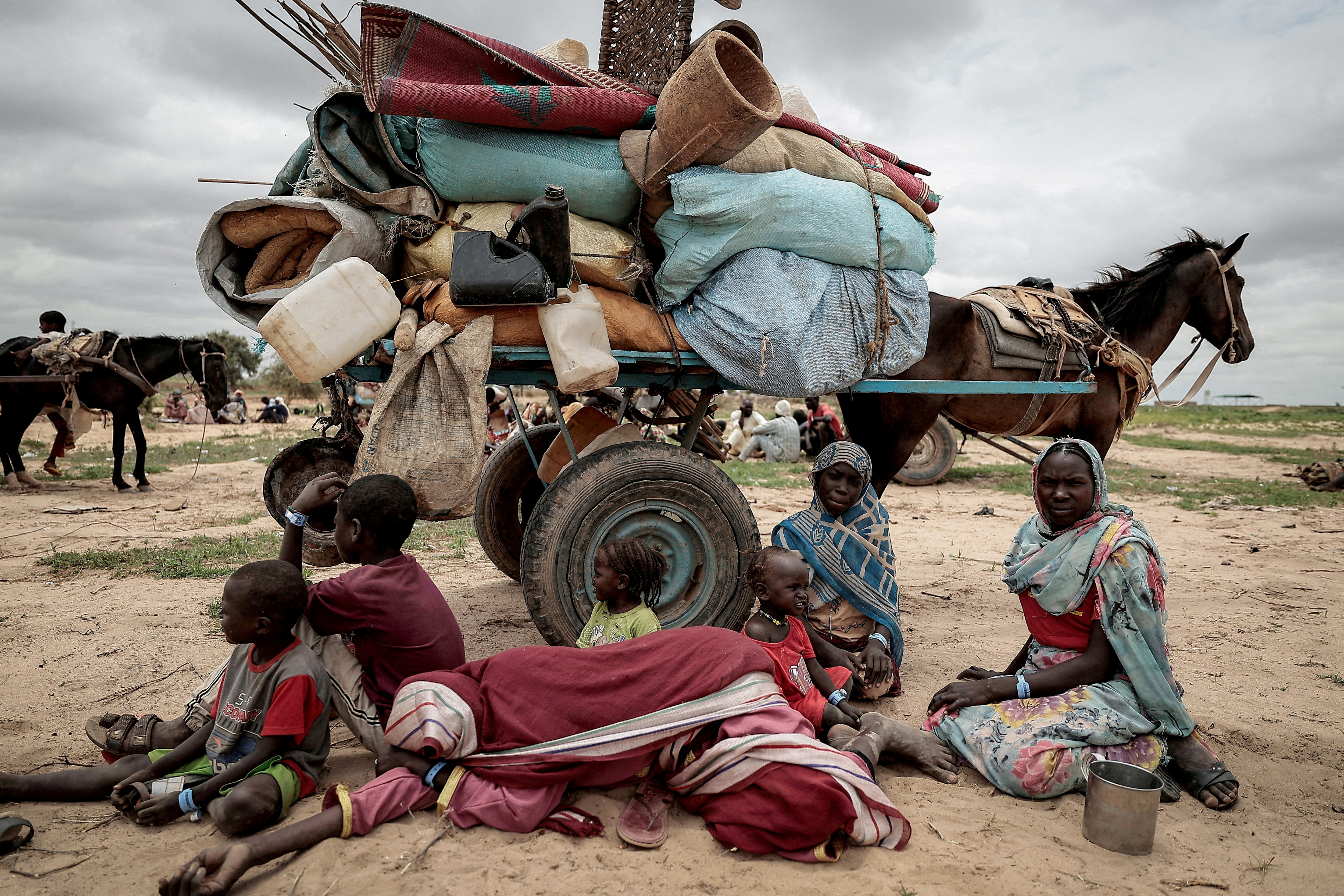
An attack on a humanitarian convoy of the International Committee of the Red Cross (ICRC) in the Sudanese capital has killed two people and injured seven, says the group.
The wounded included three ICRC staff members, the Red Cross added in a statement on Sunday.
“The humanitarian convoy, consisting of three ICRC vehicles and three buses, all clearly marked with the Red Cross emblem, was due to evacuate over a hundred vulnerable civilians from Khartoum to Wad Madani when it came under attack upon entering the evacuation area,” the statement read.
The ICRC said it was shocked and appalled by the attack, which it described as deliberate.
It did not point the finger at any party. Still, Sudan’s army said the convoy had come under fire after violating an agreement by approaching its defensive positions, using a car “belonging to the rebels” – a reference to the paramilitary Rapid Support Forces (RSF).
The ICRC convoy was evacuating civilians, including foreign nationals, from St Mary’s Church in Khartoum, according to the army.
“The humanitarian operation had been requested by and coordinated with the parties to the conflict, who gave their agreement and provided the necessary security guarantees,” the ICRC said.
In a separate statement, the RSF accused the army of attacking the convoy. It said the incident had resulted in deaths as well as injuries.
Since April, the army and the RSF have been locked in a conflict that has devastated Khartoum and led to waves of ethnic killings in Darfur, despite several diplomatic efforts to halt the fighting.
Generals agree to ‘one-to-one’ meeting
Sudan slipped into chaos after soaring tensions between army chief General Abdel Fattah Burhan and RSF commander General Mohammed Hamdan Dagalo exploded into open fighting in mid-April.
The war broke out due to disagreements over plans for a political transition and the integration of the RSF into the army, four years after former ruler Omar al-Bashir was deposed in an uprising.
More than 12,000 people have been killed, according to a conservative estimate by the Armed Conflict and Event Data Project, while the United Nations says nearly 6.8 million have been forced to flee their homes.
In a meeting of the leaders of the Inter-Governmental Authority on Development (IGAD), a grouping of East African countries, Burhan and Dagalo agreed to “an unconditional ceasefire and resolution of the conflict through political dialogue” and to hold “a one-to-one meeting”, the bloc said in a statement on Sunday.
Burhan, who chairs Sudan’s ruling Sovereign Council, attended the Saturday meeting in Djibouti, which holds the rotating IGAD presidency. Dagalo, whose whereabouts are unknown, spoke over the telephone with IGAD leaders.
The statement gave no further details, including when and where the two generals would meet.
In a post on X on Sunday, Alexis Mohamed, an adviser to Djibouti’s president, said the Sudanese generals “accepted the principle of meeting within 15 days in order to pave the way for a series of confidence-building measures”, which would eventually lead to political talks to end the conflict in Sudan.
There was no immediate comment from either the Sudanese military or the RSF.
IGAD is part of mediation efforts to end the conflict, along with Saudi Arabia and the United States, which facilitated rounds of indirect talks between the warring parties as recently as early in November.







